This article describes several things, I did for our virtual pub quiz and maybe give you some hints to do your own virtual pub quizzes yourself.
The OG Pub Quiz
We have seen several pub quizzes in a variety of pubs, but most of the time, most rounds follow a certain pattern:
- Trivia questions
- Music questions
- Image questions
- Crossword quizzes
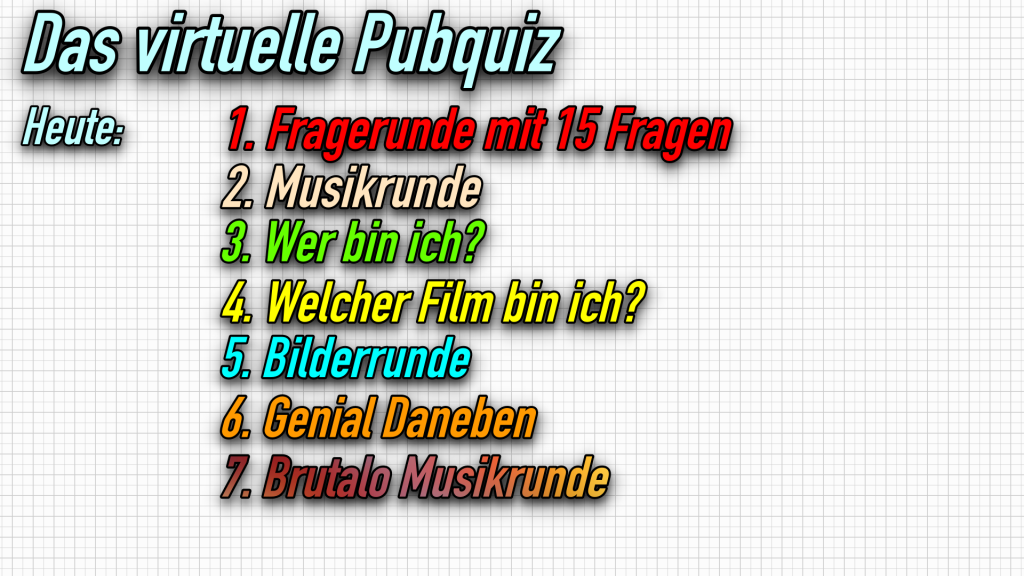
Trivia questions is pretty simple to explain. You ask some questions and hopefully have the right answer. For music questions, you mostly ask for a song title and the musician who sings it. Image questions can be pretty easy, if you ask for images of celebrities and ask who that person is or something similar. Visual quizzes can be crossword puzzles, sudoko or similar things

We started out with this basic structure and expanded on that. In the following, I will try to explain my methodology how to come up with questions for each of them and show some additional question rounds.
Counting
In a standard pub quiz, there are usually several diverse groups of people. Most of the times, there’s a general count for each participating group. In a zoom call, it doesn’t make much sense to do separate groups, instead we make a Me vs. Them counting. It means, I challenge them to solve my questions and riddles and I count if they answered correctly or not. In this scenario, it’s not about winning or absolute domination, it’s about having fun with your friends. And we had the most fun with such a setup so far.
In order to be fast with counting their correct answers, I usually prepare an Excel sheet with the correct answers that I fill in off-screen that automatically counts up their points vs. the maximum amount of points they can achieve.
Moderation and Presentation
When it comes to trivia questions, I have tried out several ways to accept a correct answer. But when do you accept a correct answer?
One question round begins as you (as the host) ask the question. Depending on the difficulty of the question, correct answers could come automatically. But most of the time it leads to an internal discussion between my friends what is the correct answer. At this point, you can let them discuss amongst each other until they decide on a correct answer democratically or once you hear a correct answer. I have seen several question rounds where the correct answer was mentioned, but for some reason wasn’t accepted among the group. I have tried out both versions and I think the latter one is actually the most fun a group dynamic could have, because during the discussion, someone randomly says a thing, just guessing… and then it’s actually the correct answer. And those were among the moments we liked the most. More on that later for the „Genial Daneben“ round.
Most of the time, I try to work with a two- or three monitor setup as a host. I have a pretty crazy setup right now that involve a TV as a secondary monitor and an iPad in a side-car configuration for my MacBook. I have the main questions directly on my Mac screen, points lists on the iPad screen and the secondary monitor as a background for screensharing, for example if you have to show images or placeholders. But more on that later.
How to come up with Trivia questions
Now, this is a difficult topic. A standard trivia round has somewhere between 10 and 20 questions, currently we are using 15 questions, as we have more other rounds in our gaming sessions. You do know your friend group and have a certain feeling who knows what. One friend might be a math teacher, someone has a degree in chemistry, another likes playing video games and so on. When I usually start my process of coming up with interesting questions, I have a first look what’s going on in the world: Has there been a sports event recently, what’s happening in politics, what’s going on in the entertainment business, have new games come out, and so on. Most of the times, I look at news websites for some of this input.
My method is to take a piece of information and try to find out what thing you could ask about. For example, if there’s a formula one race over the weekend, you could ask who won the race or where the race took place. Once I figure out the answer, I think about, how I formulate the question. This can be tricky sometimes, because depending on how you ask, the answer might be pretty obvious but on the other hand you don’t want to formulate the question such that no one could come up with the correct answer. What I liked as a quizmaster was the way a German TV host does his question. His name is Elton and usually he tells a story around a question until he finally gets to it. Recently I was looking up some random page about Pixar and remembered the A113 easter egg that they had in all their movies. So I started talking about Pixar and the origin of the A113 easter egg, with my friends thinking I would ask a question about Pixar at some point or A113. Well, I didn’t. Actually. At some point, I did a 180 on the question and asked where the A113 lies, which is the designation name of a German Autobahn (or Highway). If you ask a too predictable question, then sometimes one of your friends would shout-in the answer already when you are reading the question… in this case they have no chance but to listen. And that 180 is quite funny too.
But what are the main sources for the questions? Most of the time, I would start with the date of the quiz night. Wikipedia has a list of certain events that are associated with that date. Either something has happened in history, a famous person died on that day, has a birthday or was born on it, maybe some funny International Day of X is celebrated on that day. In this week, the day of the quiz was happening at the International Day of Kissing, so why not ask a kissing-related question? Then it’s some research about some facts about kissing (like records, biological stuff, techniques, etc.). At some point, I found a reference about the record for longest kiss. So, why not ask something about it. With some research, the exact number was 33 hours according to the Guiness Book of Records. However, it seems quite unlikely that anyone would know that answer. What I do then is, give them four answer options like in a round of Who wants to be a millionaire, so they could debate on the correct answer. In general it’s a tricky thing, what can you ask them and how can you formulate the question that it is possible for your friends to answer them directly.
Music round
The second classic thing is a music round. Most of the times we have 10 songs chosen randomly and ask for the artist and the song’s name. Usually we play about 60-90 seconds of the song, such that the chorus of the song is played at least once. In case the song’s easy to guess, we have a thing where anyone could shout in „STOP“ to pause the song for the moment and tell song title and the artist’s name.
Now, the trick is to make this music round interesting. In our local pub quiz, our quiz master usually uses a given theme for the Top 10 list. 10 songs where the title contains a given word. 10 songs that start with the same letter. 10 songs about animals. A common thread that runs through each song. Once you have an idea about what you can ask, you can make an in-depth search on Spotify or similar music streaming service and start selecting songs. Then you can try to wiggle it down to 10 songs that may contain songs that everybody knows and also more difficult ones that only a few could recognize.
You can even make life a little harder. Why not play just the first notes of a song and then end after just 10 seconds. Or play the songs backwards. Once, I was looking up mash-up megamixes on YouTube that would contain fifty or sixty songs. Most songs are only included subtlety, so I asked my friends to write up everything that they’ve heards. They got probably half of the songs right in the first run until I made a second run, showing them the song with the video running in the background.
In the last couple of weeks I also introduced the notion of a Memory into the quiz. Have two songs connect with each other in some way. For example 5 pairs that contain younger artists and maybe a song by their parents. Or the lyrics of a song would reference another artist or song and you would include that as well (Example: Bon Jovi’s It’s my life would have the verse „Like Frankie said ‚I did it my way‘), so you take It’s my life and any random Frank Sinatra song. This also gives you the opportunity to hand out more points.
You can also extend the music round to soundtracks, so you have three things to guess: Title, artist and the movie where the song was taken from. Sky’s the limit. Streaming-wise I would rely on a two-monitor setup, where you share a placeholder screen and have iTunes, Spotify or any Music program of your choice run in a non-streaming window. As most programs have auto-popup information if songs change, try to block or disable those before the quiz night starts.
Image rounds
Another classic round in any Irish pub quiz is to hand out a piece of paper that contain a bunch of celebrities and you’d have to guess their names. If this is too easy, why not use Internet celebrities, YouTubers, Instagrammer, TikTokers and so on. Or try to find images of baby photos from celebrities. Or Pokémon. Or flags. Or company logos. Anything that fits to a certain theme.
Recently, I was looking in a local book store and I found a book on map-based questions. The idea is pretty simple, but takes some work. Consider a city of your choice, like New York, Berlin, London and so on. Zoom in such that you can see street names, names of places and parks and similar things. If you find an interesting sounding name, make a question out of it. For example, in London you can find a New Bond and an Old Bond street and another street called Burlington Gardens that crosses both. Then I would ask a question like „In which gardens do Daniel Craig and Pierce Brosnan meet each other?“. Then they have to solve the Bond question first and then look for it on the map. You can also do anagrams for streets or places.
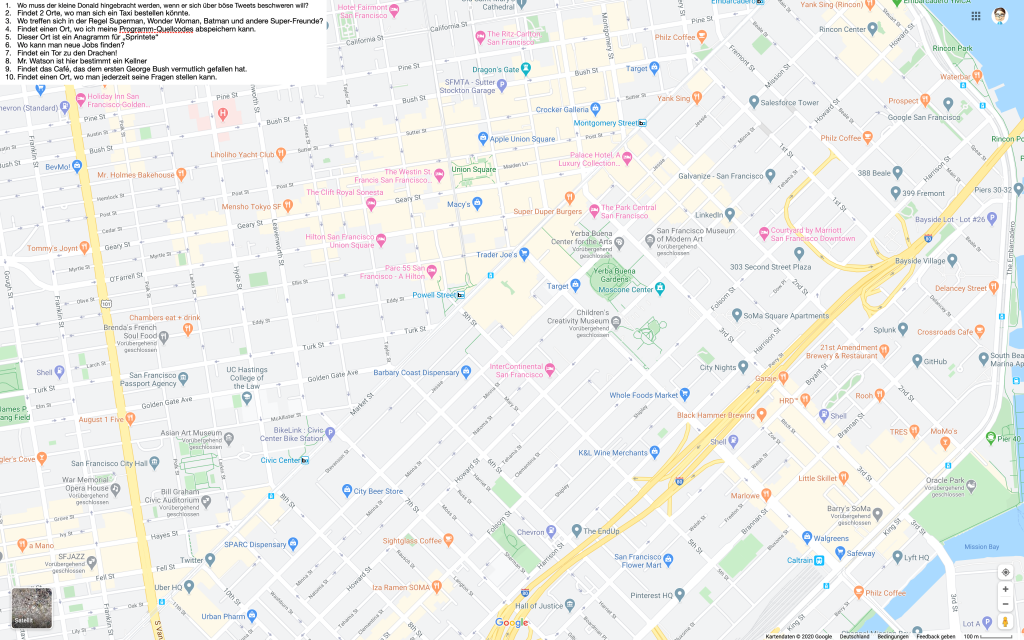
As for presenting those image questions, I would fullscreen the image on one screen and screenshare this desktop view. Make sure that everyone can see the entire image, sometimes parts of the image could not be presented to your friends, so you might zoom out the image slightly, so that everyone can see the image. Or you can share it with a common messenger like Whatsapp or Discord. Note that many programs allow annotating of images. Use this! Especially if you want to make sure what things you have already solved or not. However, keep in mind that annotations do not rescale with the image. At least not in current versions of Zoom.
Crossword puzzles
In general, I don’t use them very often, so I would have to leave this one blank. But there are a lot of crossword puzzles, sudokos and other brain teasers that you could include in a separate round. Same rules concerning screensharing apply here as with the Image rounds.
Special rounds
Often I would watch quizzes and try to find inspirations for new types of rounds. Sometimes I don’t really want to have a difficult question being answered, but I want to see the reaction to some of the things. Some things are pretty easy to find on Twitter or Reddit. For example, I was looking up hashtags like #Explainamovieplotbadly. For example if you asking for the four guys in a start-up company that get into trouble with the local government, it would probably take some time until you think of Ghostbusters.
Another type of fun rounds are mash-up rounds where you can combine two movies, a movie and a TV show or a movie and a video game. Just imagine a movie where a young guy finds out who his father was, so that he has to travel back in time when his father met his mother for the first time… it would take some time until you’ll get the correct movie: Star Wars Episode V: The Empire Strikes Back to the Future. Sometimes you can get interesting combinations out of that. Maybe a nice idea for a movie pitch.
Then I also tried out a „Who am I“ round. In the first iteration, I would collect ten interesting facts about a person and would read one after another. However, the more facts I would read, the less points a correct solution would get them. For example, you are reading one fact. If they guess correctly, this is worth 10 points. If you’d read another fact, then it’s only 9 points left and so on. Design this to be more and more revealing about a person or character. Depending on the guessing within the group, this can either take a long time or end pretty fast. So this was a tricky item to get right. In the second iteration, I would only use one fact, but a more obvious one.
One thing that my friends liked very much is the so-called „Genial daneben“ round. This is a famous German TV show, but it doesn’t seem to have an equivalent in english-speaking TV. The short summery would be the following. Strip down a curious news item or piece of trivia to the bare bones. Then have your friends try to guess the missing pieces. For example, what is the origin of the victory sign (longbow men signalling from far away that they have won a battle, or else they would have lost index and middle finger). Or what is an old maid (unpopped popcorn). Sometimes those things can be solved quite fast, if there’s one or another who has crazy ideas and for some reason get it right intuitively or it might take a while until the find the solution. This is also a great way for the host, to give them hints, tell them that they are heading into a completely wrong direction and so on. Honestly, this is one of my favorite bits of the evening.
Recently, I also tried another thing and this has become another highlight of the evening. I would just start to read lyrics of a music song in German. So either, I use a German translation of a song or try to find a German Hip Hop song that has… let’s just say… strange lyrics and for some reason end up on top of the music charts. For the english speaking audiences, I would have another suggestion. Auto-translate the lyrics from the original to another language and then back to english and read the result of this.
Other crazy ideas
At some point, I was doing a Google Trends Duel, similar to the Google Trends Show on Funhaus’ YouTube Channel. For example, present them with a search term that they would have to include into their search query and the one with the highest results wins. I would suggest to have a co-host for that for note-taking and point counting, as this thing requires some skill to pull off live.
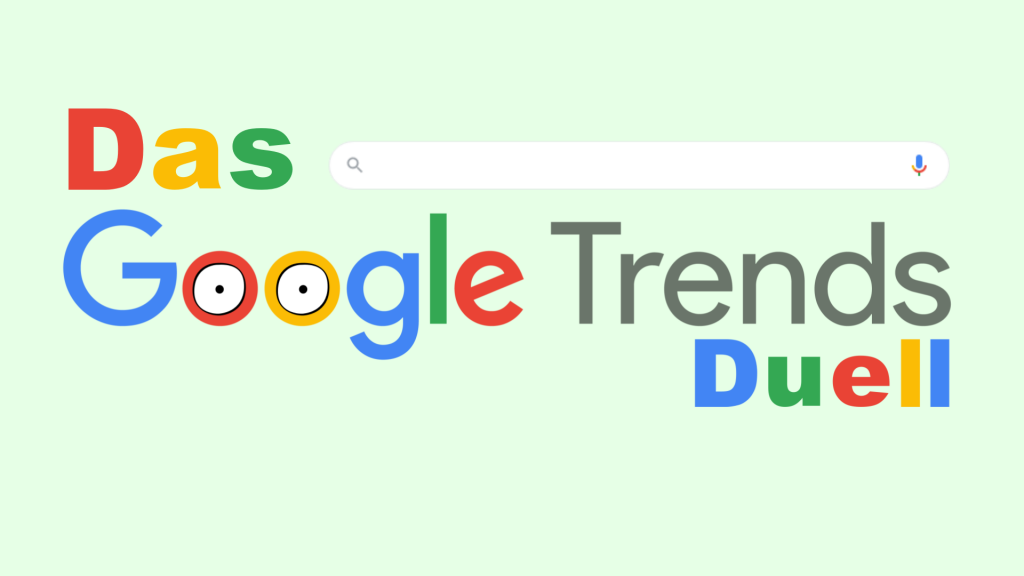
With those hints, I hope you can put together a fun quiz night with your friends via zoom. At this point, it’s not really about winning, it’s more about having fun with your friends and having a good time. Also: Don’t make this quiz night too long, as you could have some fun discussions afterwards with your friends. Let us now jump to more elaborate setups…
Boardgames
Playing board games with your friends in a Covid-19 world is difficult. But do-able. However, this might need some additional tricks. And some hardware too.
App-based multiplayer boardgames
Sometimes, there does exist a digital version of boardgames such as Pandemic or Ticket to Ride. If this is available via Steam, then you could share the screen with the others. If they could join the server with their own computer or app, then you could play together as if you’d watch a Twitch stream to some extent. Note: Co-operative games work better in such a scenario than competitive games. A more simple thing to do here, is to do Jackbox Party Games. This shit always works well.
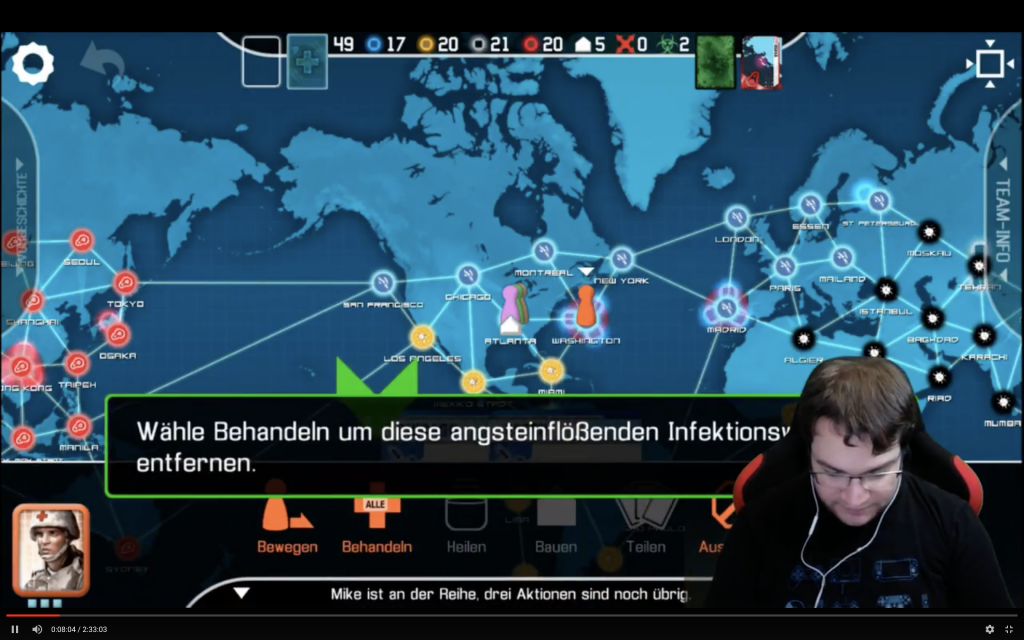
Another way to do boardgames is via Tabletop simulator which you can get via Steam. It contains a variety of boardgames off-the-shelf and you can also include premium digital versions of known boardgames as DLC. Or have a look into the Steam workshop.
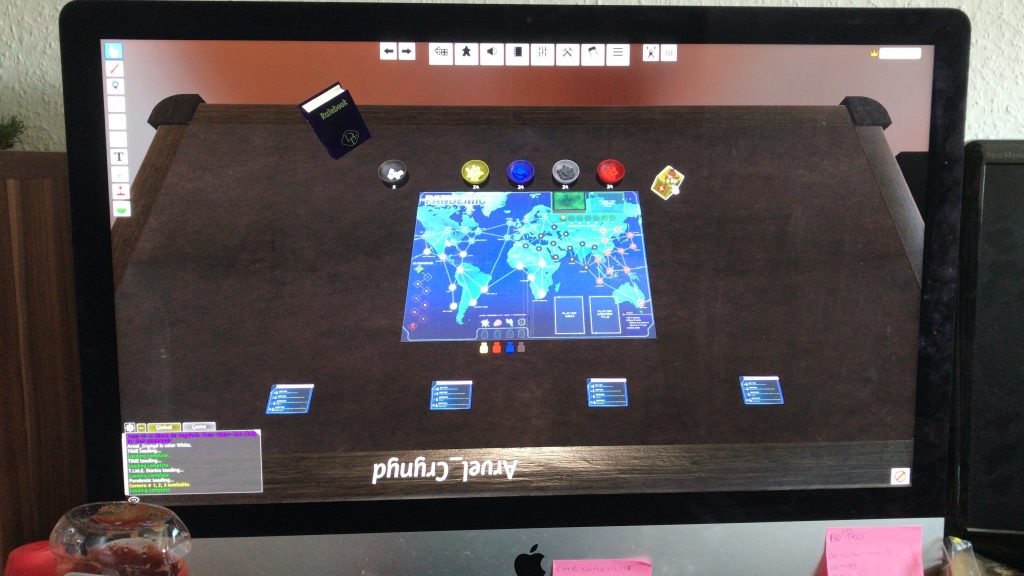
Camera-based multiplayer boardgames
This is extremly difficult for one-time users, as this requires webcams or high-resolution digital cameras with live-video output. If your setup is able to use those things as direct video inputs, you can place them within a basic OBS page and then project the image to a screen which you then can use for screensharing. In worse scenarios, you might also need screen grabber hardware like elGato devices to get the necessary video information.
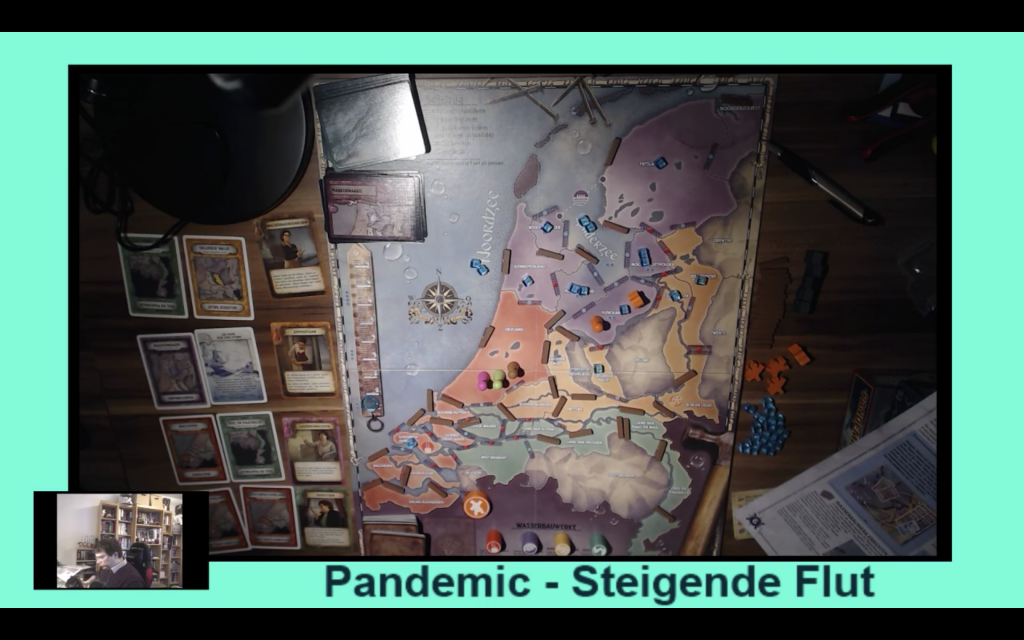
At some point I had the crazy idea to stream Pandemic – The OG boardgame version. To this end, I would put up the board on my desk, put an HD webcam on a high tripod and film downwards (also take care about lighting then). OBS then grabs the webcam input and this can be either streamed to a streaming platform or projected onto a free desktop that you can screenshare. It was more like a proof-of-concept stream that day… but it did work.
A more elaborate thing that I did, was to stream the boardgame Detective. Detective is a (duh) detective game in which you try to solve murder mysteries or other criminal activities. Basic structure is to start from a case description and follow the many leads and try to avoid red herrings as good as possible.

You can draw cards that would lead to another leads and so on until you have a good grasp about what happened. Sometimes you would also have to consider information from the internet or information from a game-specific website. This setup changed probably the most during our sessions. I would design a basic OBS scene that would include all necessary game items, placeholders for the cards and placeholders for the internal website. In the beginning I tried to have two webcam inputs for this one (one for me, one for the cards), and a window capture (for the website). However, resolution for the camera picture and lighting was always difficult to achieve, so I stuck to additionally use an elgato grabbing device to get the video output of my iPad. Then I would make a photo of a new card, open the image and switch the OBS to that image.
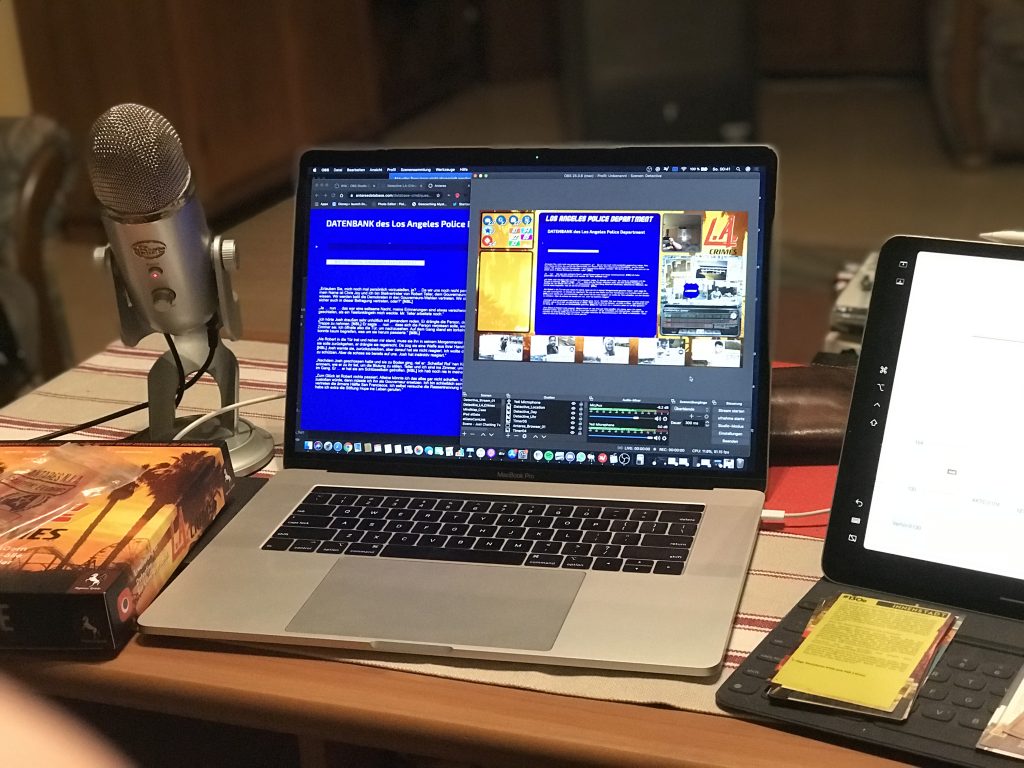
Furthermore, I had a mind note programming in the background where I tried to keep up with the set of information that would come up once we read a card or website. And of course I had to moderate the entire conversation, until we were on the same page how to proceed. One case would then take between 3-4 hours. But this was always lots of fun for everyone. Unfortunately we have finished up all cases already and are looking for new gaming experiences. And for me another opportunity to present the game from far away.
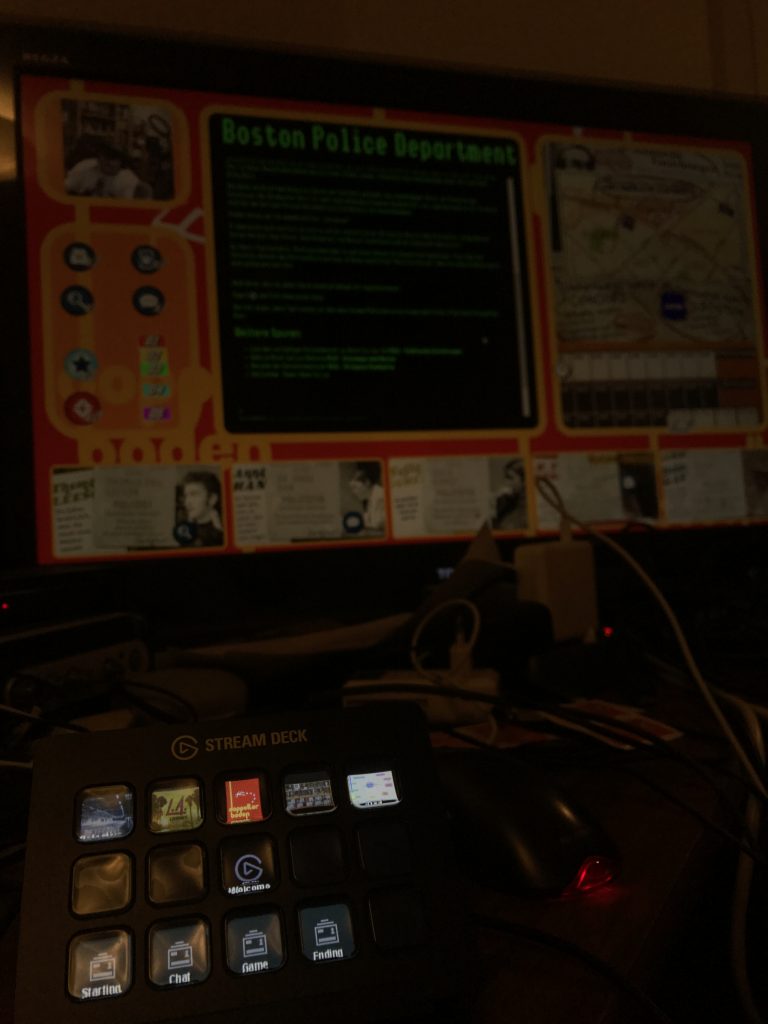
I hope I gave you some hints and ideas how to do similar stuff with your friends via zoom or any other video conferencing software.